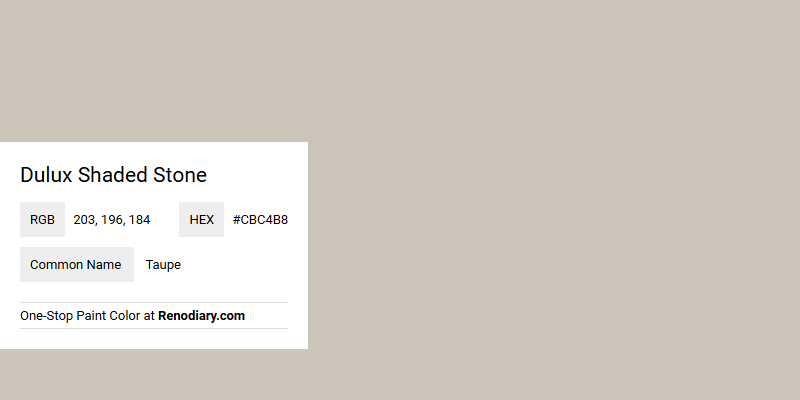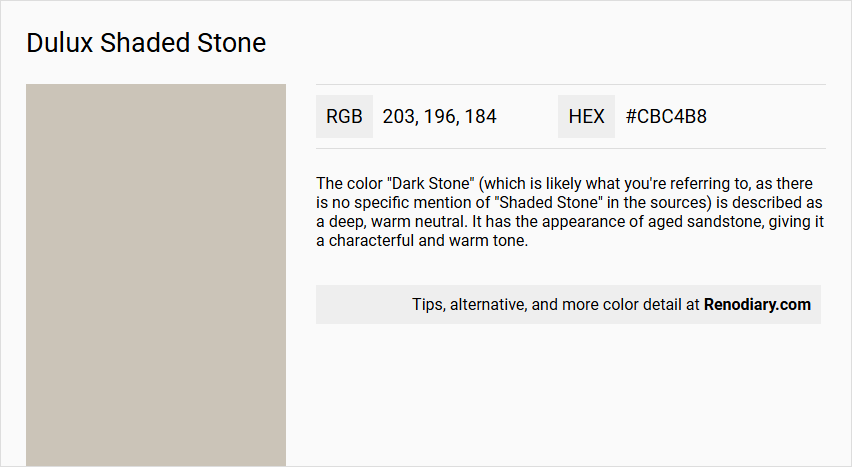
The Dulux paint shade known as Shaded Stone boasts an elegant taupe hue, characterized by its balanced blend of warm brown and cool gray undertones, identified by the RGB code (203,196,184). This versatile color brings a sophisticated and classic touch to interior spaces, seamlessly complementing various design styles from modern minimalist to cozy traditional. Its neutral nature makes it an ideal backdrop for vibrant accents or calming coordinates, making it a popular choice for those seeking a timeless aesthetic.
Color Description
The color "Dark Stone" (which is likely what you're referring to, as there is no specific mention of "Shaded Stone" in the sources) is described as a deep, warm neutral. It has the appearance of aged sandstone, giving it a characterful and warm tone.
Undertones
The color has undertones that evoke the warmth of baking, such as warm croissants and hot buttered crumpets, indicating a slight brown or beige undertone.
Color Values
While the exact color values for "Shaded Stone" are not provided, "Dark Stone" has a warm and deep tone. For a similar shade, "Stone Gray" (DLX1023-5) has an LRV (Light Reflectance Value) of 30, but this is not the exact shade in question.
Usage
- It can be used for both winter and summer themes, providing a cozy atmosphere in winter and a light, airy feel in summer.
- It pairs well with other colors such as Brushed Gold, Cream, Mud Lark, and Roman White.
Atmosphere
The color creates a warm and inviting atmosphere, suitable for wrapping up in during winter and bathing in light during summer. It adds character and depth to any room, much like the appearance of aged sandstone.
Dulux Shaded Stone Color Alternative
Dulux Shaded Stone presents a sophisticated neutral that can be beautifully emulated by its color alternatives. Tikkurila Empress X477 offers a warm, inviting tone while Tikkurila H486 adds a subtle richness that enhances any space. For those seeking a refined finish with a balanced hue, Tikkurila Plaster X487 stands out as an ideal option, complementing the overall aesthetic seamlessly.
Bathroom
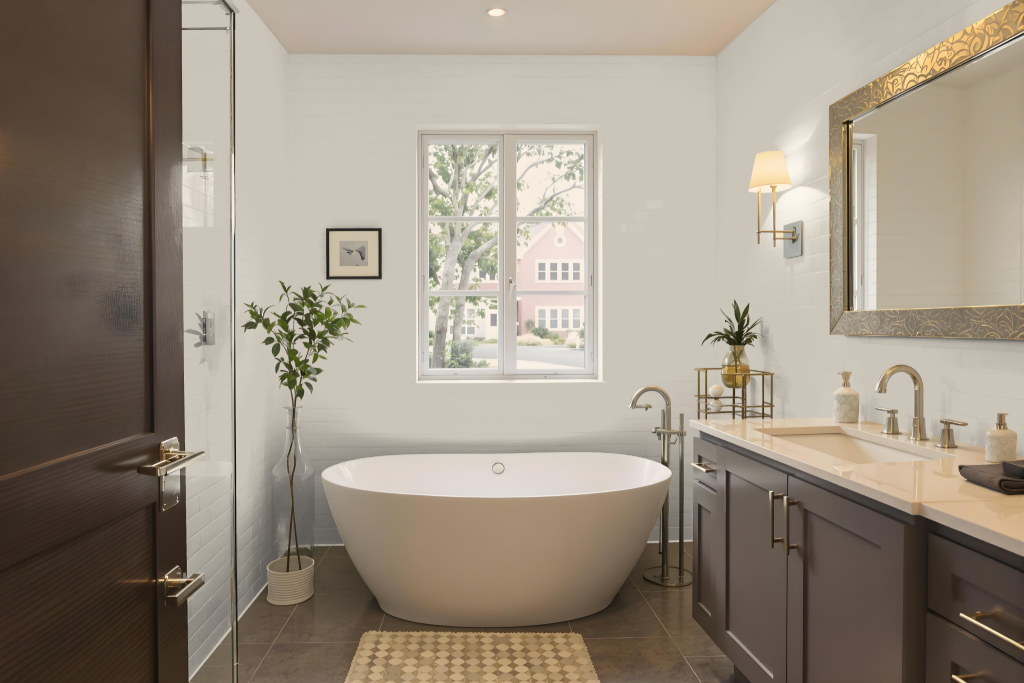
Dulux Shaded Stone is an excellent choice for a bathroom, offering a neutral yet warm tone that works well in spaces with varying natural light. Its red undertones require mindful pairing with tiles, flooring, and fixtures to create a cohesive look and prevent visual muddiness, making it essential to consider the existing hues within the bathroom environment.
For the best results, test the paint in natural daylight alongside the specific materials used in the space to ensure the color harmonizes under real conditions. Additionally, when applying this finish in moisture-prone areas, use an appropriate primer or protective coating to enhance performance and durability in the long term.
Bedroom
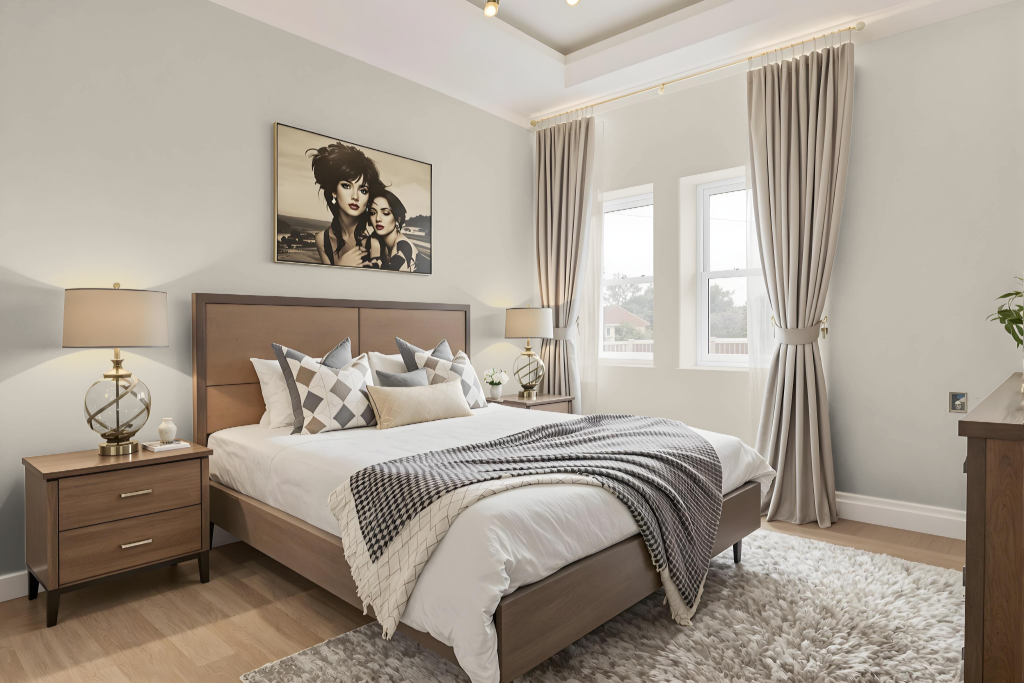
For a bedroom color scheme featuring Dulux Shaded Stone, it is important to consider the room's ambiance and lighting. In spaces with cooler, low natural light—especially north-facing rooms—this color can work well when combined with warm neutrals or soft pastel hues.
Strategic use of contrasting undertones, such as hints of yellow or pink, helps to counteract any overly cool atmosphere. Additionally, incorporating softer greens like sage or other warm earthy tones can create a calm, cohesive environment that makes the space feel inviting and restful.
Kitchen
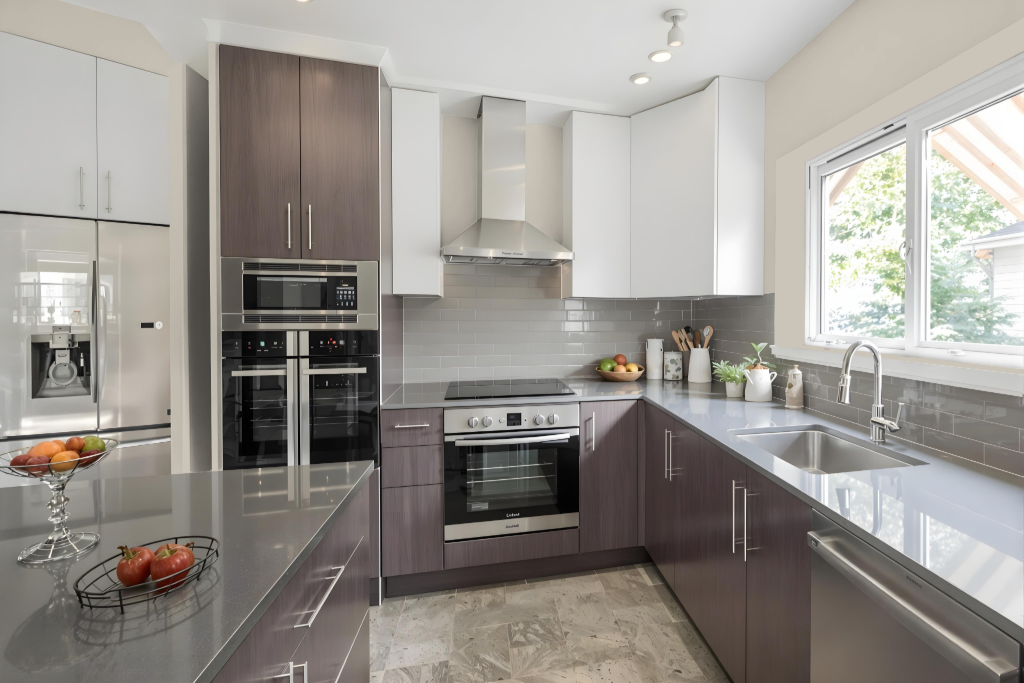
For a kitchen color scheme, Dulux Shaded Stone inspires a warm and inviting atmosphere when applied as wall paint, especially alongside complementary neutral or lighter hues for the cabinetry. Using this tone on a feature wall can provide an attractive focal point, while surrounding spaces painted in subtle, lighter colors maintain a balanced look.
Enhancing the design with accents in hues that lean towards cooler blue shades or muted earthy tones like soft grey, warm beige, or cream adds depth and visual interest. This layering of colors creates a dynamic, yet harmonious space that feels both modern and comfortably lived-in.
Living Room
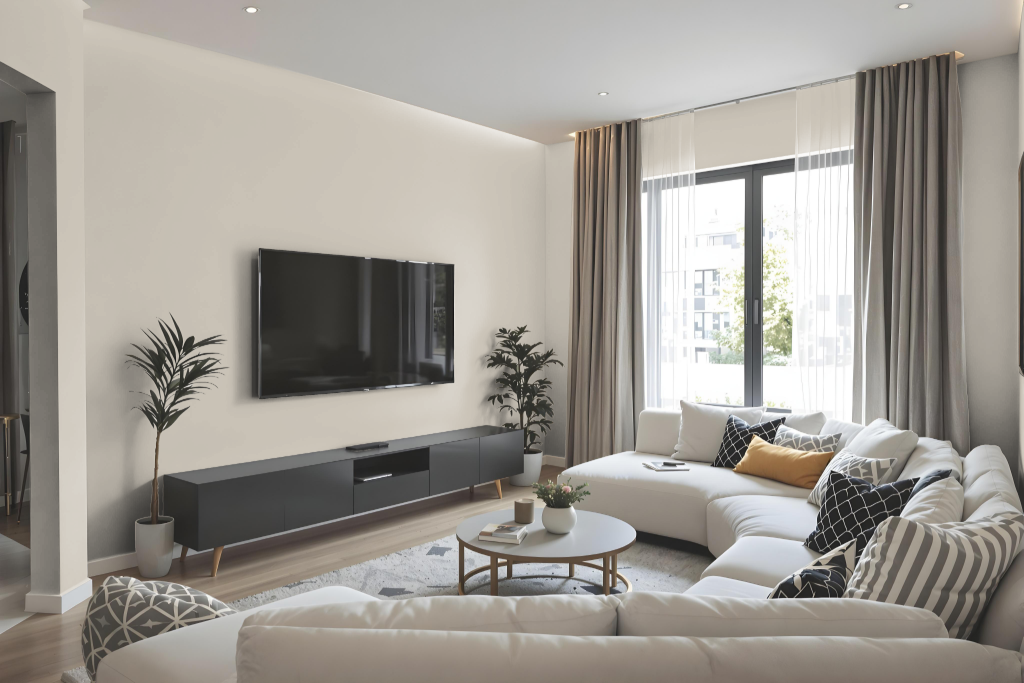
In the living room, Dulux Shaded Stone creates a refined backdrop that adapts beautifully to changing natural light. It is advisable to test the paint on a white sheet or a small sample area first to observe how its appearance shifts throughout the day, ensuring that the final application meets your visual expectations.
When planning your space, consider the room’s orientation; the color can impart a warm, inviting feel in east and west-facing areas, while it may feel cooler in north-facing settings with limited daylight. Additionally, matching it with complementary hues or using it within a monochromatic scheme highlights its ability to harmonize with other elements in your décor, with careful attention to different surface textures enhancing its overall impact.
Outdoor
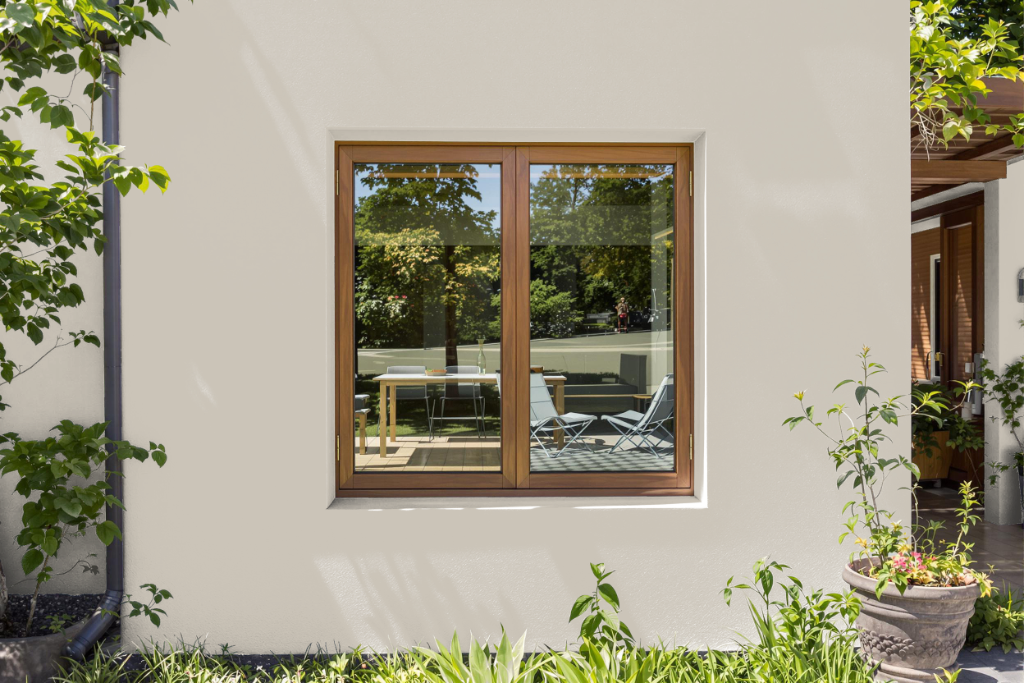
For your home outdoor project, Dulux Shaded Stone provides an attractive option to refresh exteriors. Begin by preparing the surface thoroughly—cleaning, drying, and eliminating contaminants such as dirt, chalk, grease, fungi, and algae—with the proper tools, and repair minor cracks with a cement and sand mixture. For chalky surfaces, apply a sealer, and treat areas affected by algae or fungus before painting.
When applying the paint, start with a sealer, follow with the paint itself, and finish with a clear topcoat to enhance protection. Use appropriate tools like an air spray for application, and be sure to follow proper storage and cleaning guidelines, keeping the paint in a cool, dry, and well-ventilated space while cleaning equipment promptly after use.
